TERENCE CORNELIUS FARMER PRITTIE

Publicity Shot

Studio portrait

Terence Prittie at 9 months with his 22 month old elder brother Desmond from an article in the Tatler dated 09/09/1914

On the steps of Kilboy House with family, Terence on the left

At home in Kilboy - (Tatler Magazine - 09/01/1935)
Early Years
The Honourable Terence Cornelius Farmer Prittie was born in Paddington London to Henry Cornelius O’Callaghan Prittie (later 5th Baron Dunalley) and his wife Beatrice Evelyn Graham on 15/12/1913. Terence was the second son with an elder brother Desmond. Terence was a sickly child so for the most part was home educated. He did however develop a liking for sport and was a keen shot on the family estate at Kilboy.
When he was 10, Terence was sent to Cheam Preparatory School in Headley, Hampshire. Noted Alumni would be Sir Randolph Churchill, the Duke of Edinburgh and later, the future King Charles III. Terence was unhappy whilst there and moved to Stowe School in 1927. This would have coincided with the return of the Prittie family to the newly rebuilt Kilboy House.
Terence left Stowe in 1932 and spent some time in Germany observing the fledgling regime at first hand whilst at the same time mastering his spoken German. This would be to his advantage in later years. Terence made an attempt to teach some Germans of his age, the rudiments of the game of Cricket. His companions didn't take to it and instead took Terence to watch some local youths perfect their skills at mastering the art of throwing hand grenades. Surely an indicator of what lay ahead?

Terence writes of his experience of Cheam Preparatory School - (Through Irish Eyes by Terence Prittie)
One wonders if his time spent at Cheam prepared him for his later ordeals as a P.O.W.
Returning to Britain, Terence became a student at Oxford where he read Modern History at Christchurch. He was awarded a second class degree in 1936. In 1937, upon leaving University, Terence joined Childs Bank in Fleet St. London. This was a private institution and was the oldest Bank in the U.K., predating the Bank of England by thirty years. The bank had a branch in Oxford since 1932 and held accounts not only for the families of the wealthy but also for a number of the Oxford Colleges. However, Terence didn’t enjoy his time with the bank and so left it to join a firm of Stockbrokers.
The War Years
Terence joined and was commisioned 2nd Lieutenant (78432) in the Reserve of the Rifle Brigade on 09/11/1938, his family having had previous historic connections with the regiment. With the outbreak of war in September 1939, Terence was called up and found himself with the British Expeditionery Force at Calais in 1940. The Calais defenders were under strict orders to hold their positions until the last man. However the Germans appeared to be in no rush to advance towards them, content to bomb the British positions from JU87 Stuka Dive-bombers plus they were being otherwise occupied at Dunkerque and were using the lull to upgrade and repair tanks used in the Blitzkrieg.
Terence was mentioned in the Despatches in September 1945 issue of the London Gazette for his bravery during the Defence of Calais. Terence would later remark that he missed his opportunity at this time of escaping earlier and joining the evacuated remnants at Dunkerque. Eventually Calais fell and Terence was picked up on 29/05/1940 at Abbeville, south of Calais. He describes his capture in his book Escape to Freedom….



On the BEF Casualty list and Missing list
Following his capture, Terence was marched with other prisoners towards incarceration in Germany. Terence recounts in his autobiography that at the time, the Germans initially appeared to be anxious to make a good impression on their British captives by furnishing them with food and cigarettes. Nevertheless, whilst enroute to his new lodgings in Germany, Terence managed to escape with two others. They managed to reach the coast after a few days but were picked up by a patrol as they tried to acquire a boat. As they rejoined the march towards Germany, Terence remarked....
"..... peasants who tried to hand us bread or other food while we were on the move were nearly always clubbed with rifle butts and driven away with parting kicks and curses....a nervous sentry was even liable to shoot at them and shoot to kill...."
Over the winter of 1940/41, agents of the Abwehr (German Intelligence) made visits to various P.O.W. camps to interview those identified as being of Irish parentage. Terence was one such to be interviewed. He and others were offered a transfer to a special Lager with like minded individuals with the offer of greater freedom and luxuries. Many Irishmen welcomed the distraction and so Terence found himself at Luckenwalde camp outside Berlin. It was hoped that the disaffected Irishmen would be part of a new unit. However, some of the potential recruits were there under orders to find out what exactly the Germans were up to.
Luckenwalde was basically an intelligence and interrogation camp but one section was a soft billet. This is where the Irish were put while their captives tried to persuade them to fight with the IRA against Britain. A similar exercise had taken place during WW1 as an attempt by Sir Roger Casement to form an Irish nationalist movement known as The Irish Brigade.
Terence wrote….
“…..at Luckenwalde we were given immensely better treatment. We lived in three small perfectly comfortable rooms. There was very much more and better food …we were allowed to go out for walks almost every day under armed escort, and could go wherever we wanted….twice a week we were allowed into the town for shopping or for visits to the local cinema…Curiously enough, the local shopkeepers were invariably polite even friendly towards us....in the camp itself there was as much beer and wine as we wanted. “
Terence was pulled aside and interviewed by one officer who had obviously read Debretts, and had received intelligence from the German Consulate in Ireland and was aware of the Prittie families status among the Ascendancy class in the Free State and the burning of the family home in 1923. Terence was advised to give up the charade and ask for a transfer to a British Camp. Whilst in Luckenwalde, the opportunity was forever present to make their escape. However being over 400 miles from any coastline or neutral territory they were once again faced with the problem of navigating their way through enemy territory without any documents and a very vigilant civilian population.
After Luckenwalde, Terence was sent to Stalag XX-A Thorn (Torun), a dismal damp fortress in West Prussia, 80 miles north of Warsaw. The fortress had mouldy walls, water everywhere and a pervasive smell of latrines. Their placement here was in reprisal to the British removal of German Officer P.O.W.'s to Canada.
-----
In July of 1941, Terence escaped with a colleague from Biberach VB Offizierlager (camp for officers only) near Ulm in Swabia, Southern Germany. They were disguised as workmen. They successfully evaded capture for 5 days and managed to get within a few miles of Switzerland before they finally were picked up.
Upon his return to Biberach, Terence volunteered for tunnel work to help a planned breakout by others. Work on the tunnel began on 24 June 1941. The entrance was hidden under a stove in one of the huts, just six feet from the perimeter wire. The tunnel was 145 feet long and ran under the wire and perimeter track with the exit just over a small ridge crest. It took until 11 September to complete and two days later, a group of twenty-six officers were ready to escape. This tunnel successfully saw the escape of the 26 prisoners on the 13/09/1941 which saw 4 complete home runs via Switzerland.
The Germans finally realised the temptation of keeping the P.O.W.s so close to the Swiss border so the prisoners were moved to Laufen Oflag VIIC. Coming from an officer only camp, some of the officers tried to reinforce and establish the hierarchical status quo by demanding the lower rank orderlies do the menial tasks that required doing. Some of the prisoners were interned civilians who didnt take kindly to being ordered around by the officers….one Colonel being told to Foxtrot Oscar when he demanded work from a so-called orderly… all of this dissention being encouraged by the German guards.
Terence next found himself in Warburg Oflag VIB. Once again he made an attempt to escape disguised as a workman. However a suspicious sentry saw though his disguise.
In July 1942, he escaped with four others all pretending to be a Swiss Commission and walking out of the camp. This audacious escape depended entirely on confidence, good luck and sheer bravado and of course the German inate acceptance of authority. Unfortunately outside the camp, they were discovered by a group of curious Hitler Youth at Bronzeln, near Fulda in Hesse.
In November of the same year, Terence and would be escapers were disguised as a group of French workers and travelling slowly using short journeys by train and by foot. Experienced had shown thatthey were more likely to be picked up on longer journeys. The group managed to get within 10 miles of Switzerland before they were unfortunately recaptured again.
Warburg was eventually closed as being unfit for purpose and the prisoners transferred to Oflag VIIB Eichstatt. This had previously been an army barracks so therefore was more solidly built with proper rooms, showers and latrines plus running water and electricity.
------
Finally Terence was sent to the Colditz clone, Castle Spangenberg. Like its more famous counterpart, this was a stone built castle, sited on a hill with a 30 foot dry moat surrounding. There was no soil to dig into, masonry floors…it was almost all rock. Nevertheless, tunnelling did take place. They would have to try some other means of escape as tunneling wasn’t viable being too slow.
Terence began working on uniforms to create disguises but as luck would have it these were discovered in July of 1943 very probably due to a British informer who had previously wrecked havoc at Rothenburg camp. A radio and several caches of escape equipment were seized making it unlikely to have been accidental finds due to routine searches. The turncoat was identified by the inmates and the Germans removed him ostensibly for medical reasons but basically for his own safety.
After this setback, Terence gave up on the idea of escaping and devoted his time to education and writing about his passion for Cricket. He passed the time playing a type of cricket in the dry moat as a distraction.
Terence later admitted that the constant need for secrecy was having an effect on his mental stability. Paranoia, stress and suspicion are part of the escapers daily routine. Prittie had to cease his activities if he valued his sanity. He was in effect burnt out, living on the edge, not knowing who was trustworthy and aware that with Germany losing the war, things were all the more serious with the constant threat of reprisal as Allied bombing increased.
Luckily in Spangenberg there was later to be some element of freedom albeit with armed escort, with all-day parole walks allowed supposedly to study trees but in actual fact it was also an excuse to pick fruit, berries, dandelions and any other edible produce that was growing wild which would supplement their less frequent red cross rations but more importantly, it would allow an outlet for restoring mental health.
-----
Towards the end of the war, the camp inmates were removed from Spangenberg and ordered to march Eastwards. Terence and some others took advantage of the general confusion and broke away from the main group. At this stage you have to bear in mind, all the younger trigger happy guards were otherwise occupied defending the Reich so their current guards were older Rheumatic men of the Volksturm more interested in getting home to their wives than pursuing any errant British P.O.W's.
Terence and his group were eventually picked up by a unit of the American Army on 02/04/1945. They were in truth a group of emaciated scarecrows with the scars of living on their nerves for the duration of their incarceration clearly etched on their faces. They were initially shocked by the sight of the confident, smiling, healthy and fit soldiers that presented before them. This and the sight of the giant armoured vehicles that they commanded... all so very different from that experienced from the beginning of the war.

American Red Cross map of P.O.W. camps 31/12/1944

Prisoner particulars from German record cards (National Archives)

Prittie at Oflag V11C (Laufen) - near the Austrian border

A selection of Oflag and Stalag


Oflag VIIC. - Laufen, Bavaria - (Winter 1940)
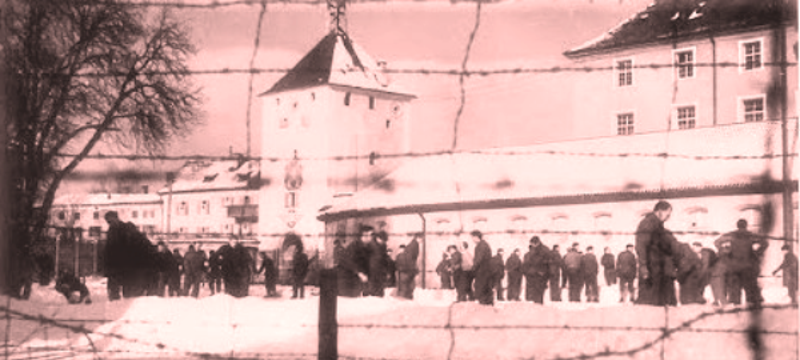

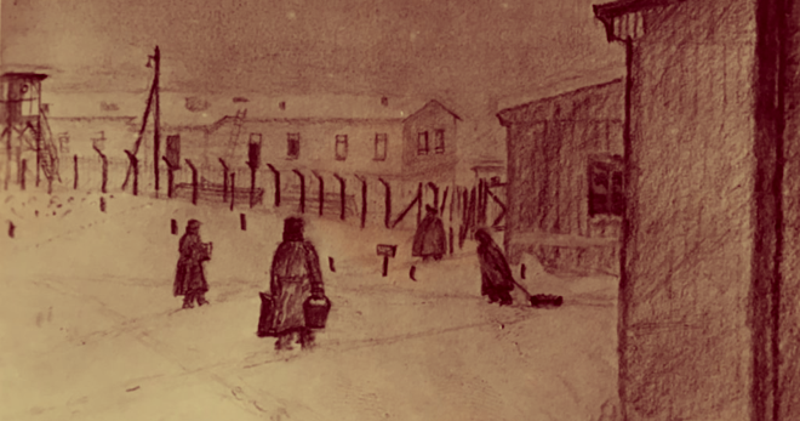
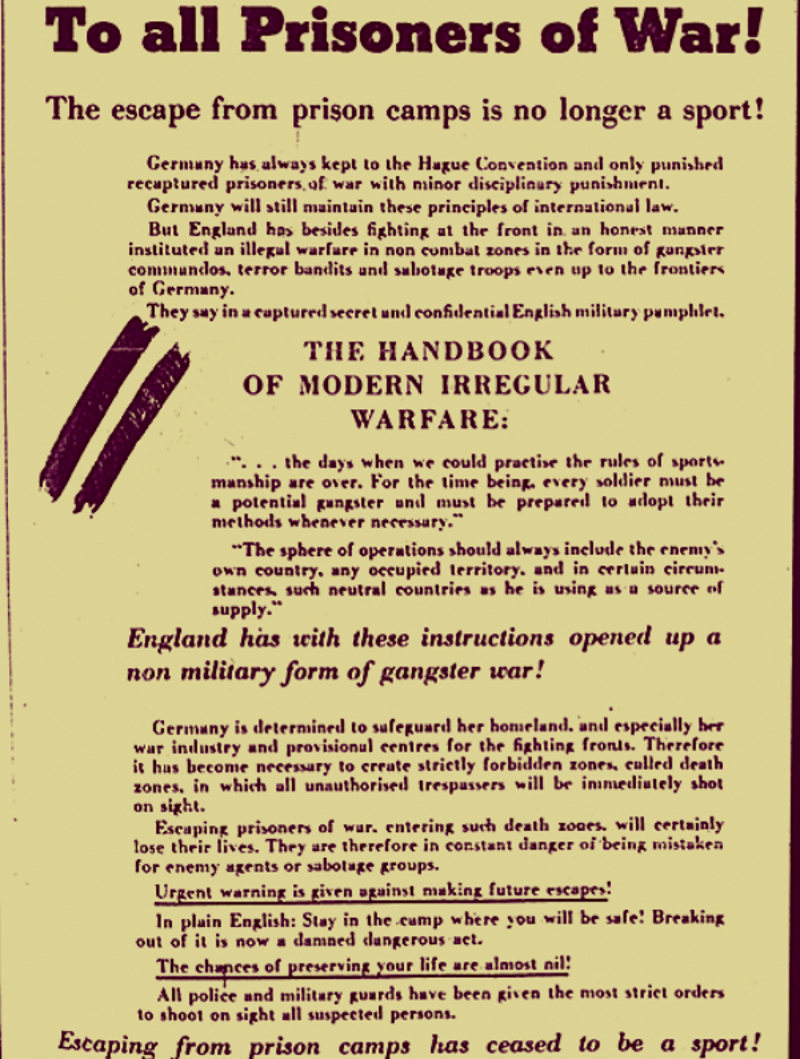
Germans making it plain that the fun is over
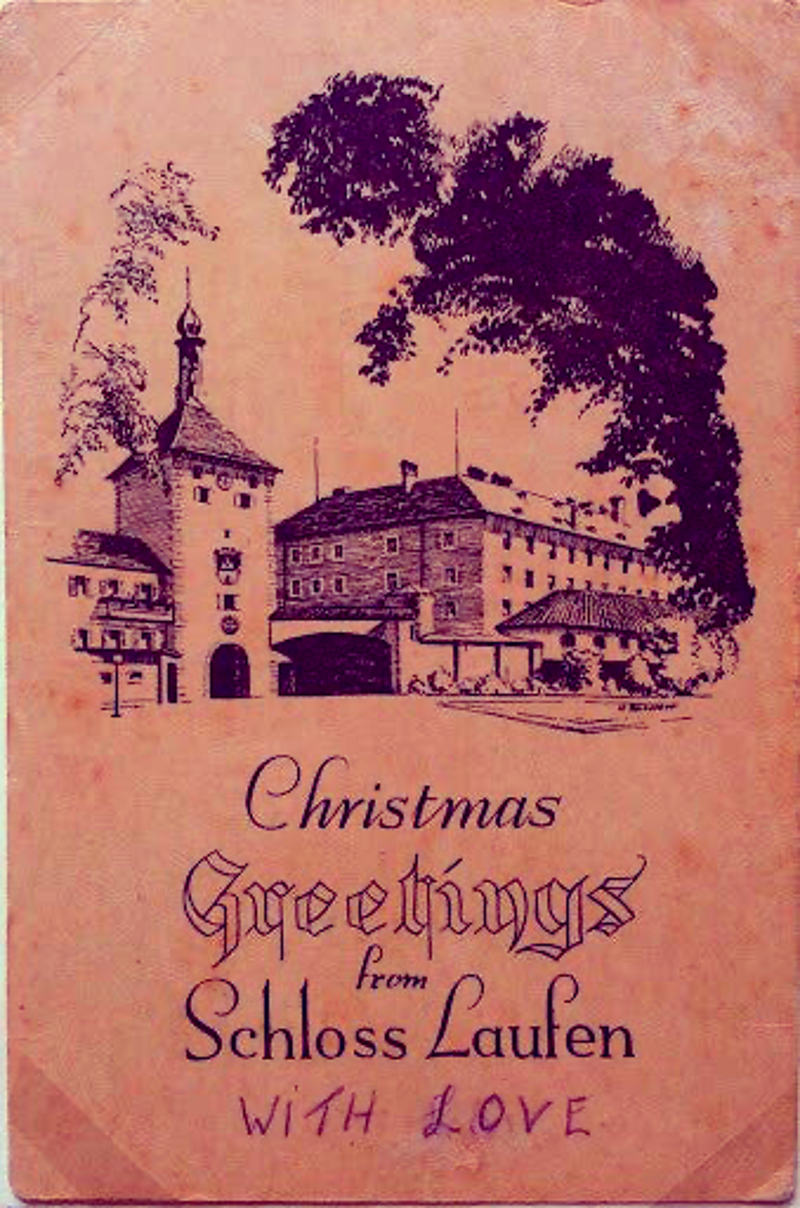
Christmas Card from Laufen Oflag VIIC - Camp 928

Inside Hut 61 Oflag VIIC - Laufen 1940

Oflag VIIC dated January 1942

Portrait while in camp

Prittie transferred to Oflag IX-A Spangenberg, a Colditz type castle in Northern Hesse

Terence wrote a book on Cricket based on obscure facts from Wisden

Escape to Freedom in which he details his time as a P.O.W. - (Terence Prittie)
Post War Years
Back in Civvy Street, Terence was formally Gazetted his promotion to Lieutenant and on 20/09/1945 mentioned in Despatches for his “gallant and distinguished services” during the Defence of Calais. On 05/12/1946 Terence was awarded an M.B.E. in recognition of his activities whilst a prisoner of war.
Meanwhile, Terence managed to secure a position as a Sports Correspondent with the Manchester Guardian. On 29/08/1946 he married Laura Dreyfus-Dundas with whom he would have two sons. In October 1946 he was sent to Germany as a diplomatic and political commentator, where he made his home. He was well liked by the Germans, especially with his detached viewpoint no doubt influenced by his Irish Ascendancy background. He was awarded an Officers Cross of the Order of Merit in 1971 for his services championing the German people. Terence wrote autobiographies of both post war chancellors, Kurt Adenaur and Willi Brandt. His affection for the German people was reinforced by the publication of his book My Germans which was published in 1983. This was also published by Time-Life.
But Terence was also an advocate for the Israeli cause, having had an interest in Zionism since his early days in Germany. He published Israel: Miracle in the Desert (1967) and Eshkol (1969) an was a frequent contributor to numerous Zionist publications. In his obituary, Terence was
"regarded as one of the greatest friends Israel has ever had in Britain".
Terence died on 28/05/1985 of Cancer.


Recommendation for an M.B.E. for his escaping exploits during his captivity
Press

Association of Jewish Refugees - Information - (February 1972)
Terence is awarded the Federal Cross of Merit

Press & Journal - 29/05/1985


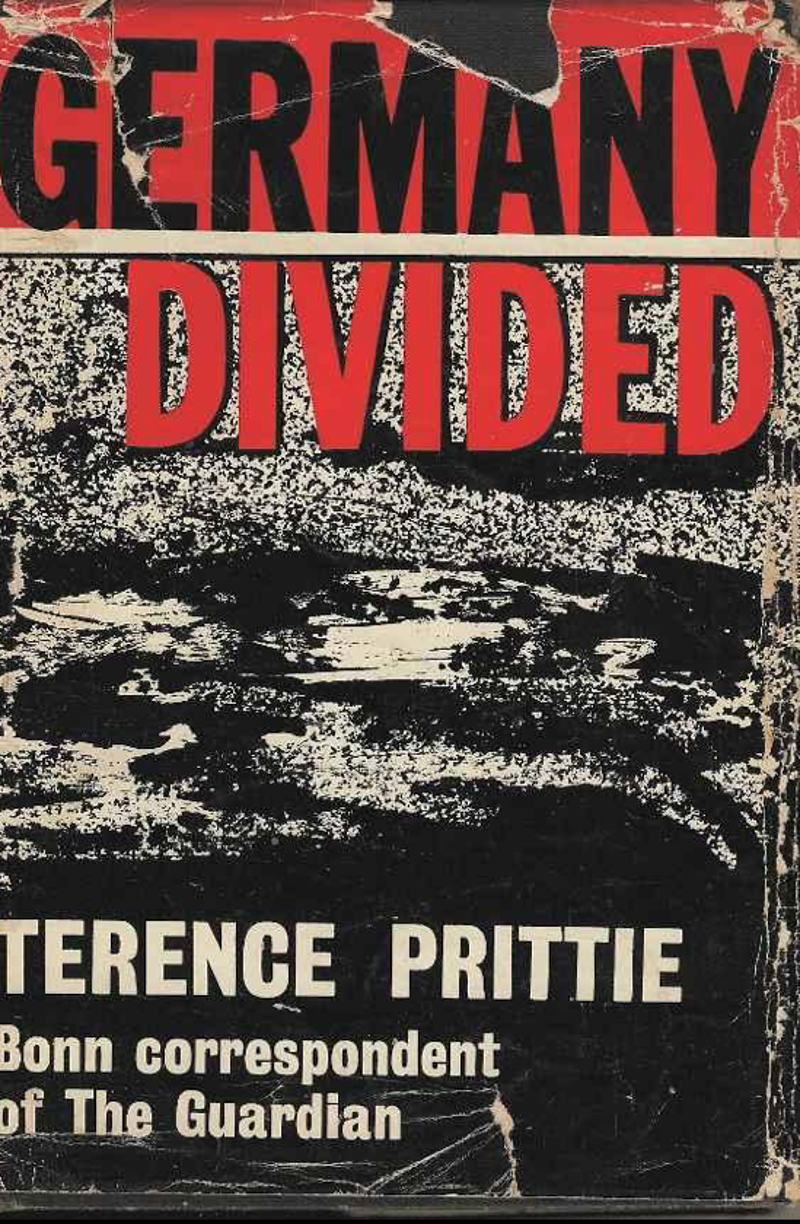




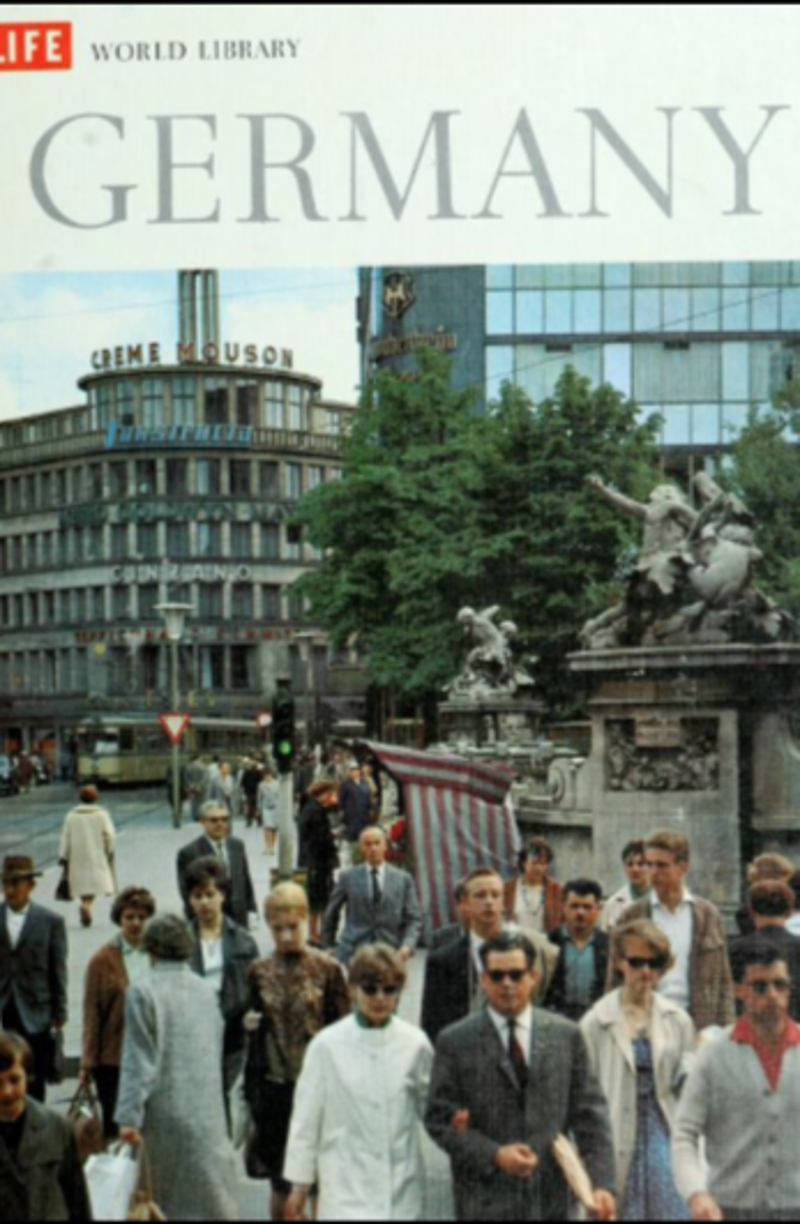
A prolific author of books and articles here's a selection of some of the many books written by Terence Prittie
Create Your Own Website With Webador